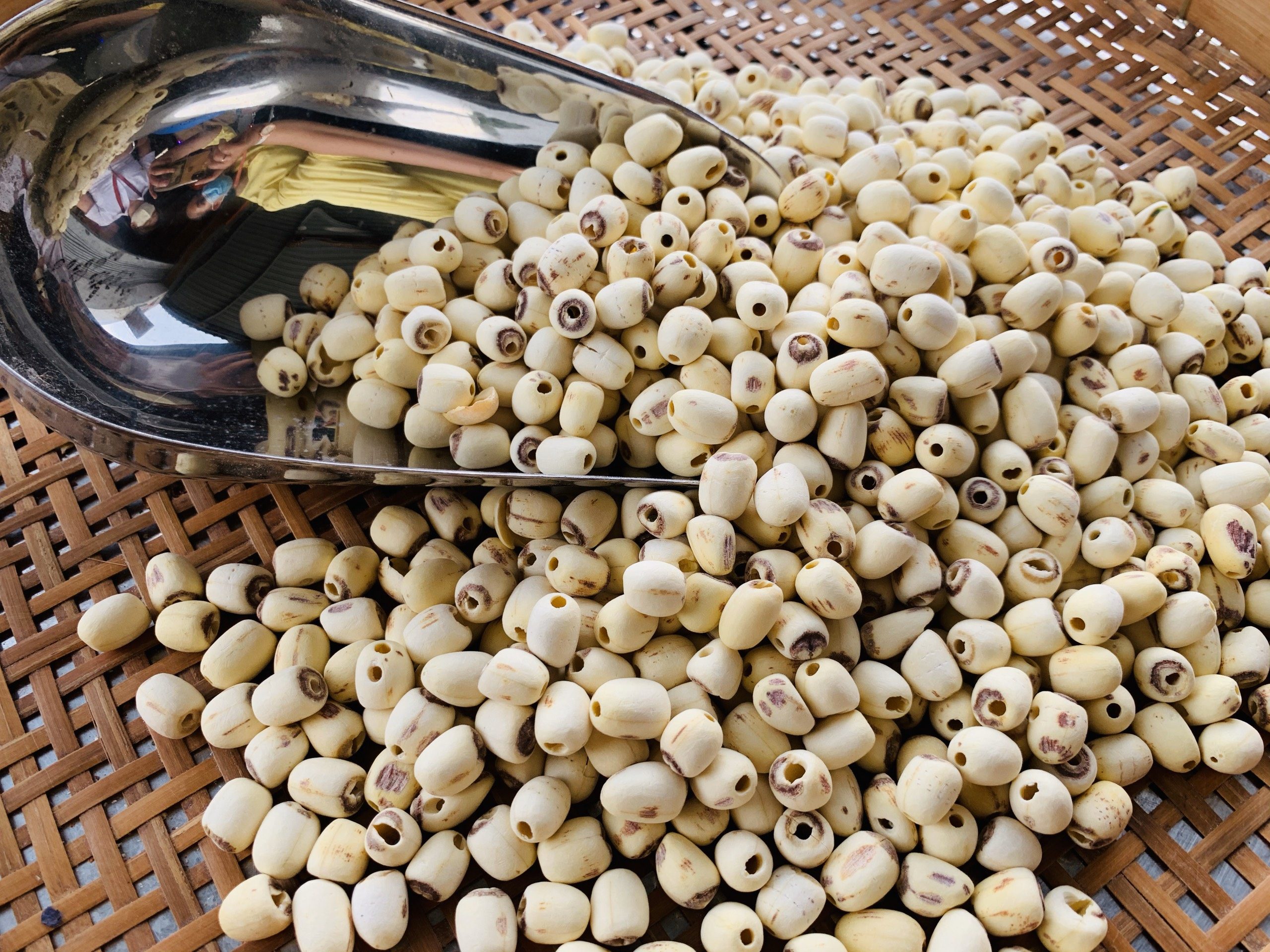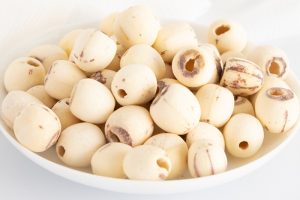
Lotus seeds are a familiar and nutritious food in Vietnamese cuisine. Not only do they have a delicious, nutty flavor, but they also offer numerous health benefits.
1. Origin and Characteristics:
- The lotus plant (Nelumbo nucifera) is an aquatic plant native to Asia.
- Are found within the lotus seed pod, with an oval shape and a creamy white or pale yellow color.
- Can be eaten fresh, dried, or processed into various dishes.
2. Nutritional Value:
Lotus seeds are rich in essential nutrients, including:
- Protein
- Fiber
- Vitamins (B vitamins, vitamin C)
- Minerals (potassium, magnesium, phosphorus)
- Antioxidants
3. Health Benefits:
- Improved sleep: Have sedative properties, helping to reduce stress and improve sleep quality.
- Heart health: Potassium in helps regulate blood pressure and reduce the risk of heart disease.
- Digestive support: Fiber in improves digestive function and prevents constipation.
- Brain health: Antioxidants in help protect brain cells from damage.
- Skin health: Have anti-aging properties and promote healthy skin.
4. Culinary Uses:
- Sweet lotus seed soup (Chè hạt sen)
- Sticky rice with lotus seeds (Xôi hạt sen)
- Chicken stew with lotus seeds (Gà hầm hạt sen)
- Lotus seed milk (Sữa hạt sen)
- Dried lotus seeds (Hạt sen sấy)

5. Export and Market Situation:
Vietnamese lotus seeds are popular domestically and have significant export potential.
- Key export markets:
- China: The largest consumer market, accounting for a significant portion of Vietnam’s lotus seed exports.
- South Korea: Another promising market for Vietnamese.
- Also potential markets in Japan, Europe, and America.
- Growth potential:
- Global demand for is increasing, particularly for processed products.
- Vietnam has favorable natural conditions and experience in lotus cultivation, meeting market demands.
- The Vietnamese lotus seed industry is proving its appeal in the international market, and could have good growth in the following years.
- Challenges:
- Improving product quality to meet international standards.
- Building brands and expanding export markets.
- The need for lotus growing areas that meet organic standards, for exporting to demanding markets such as Japan and Europe.
- Domestic market:
- The domestic market is also substantial, with many processed lotus seed products being popular.
- Fresh, dried, and processed lotus seed products have a widespread market.
6. Usage Notes:
- Remove the bitter embryo from before cooking.
- Individuals with bloating or indigestion should limit lotus seed consumption.
- People with low blood pressure should exercise caution when consuming.
- The amount of sugar and spices can be adjusted to individual taste.
Other articles:
Other agricultural products:


